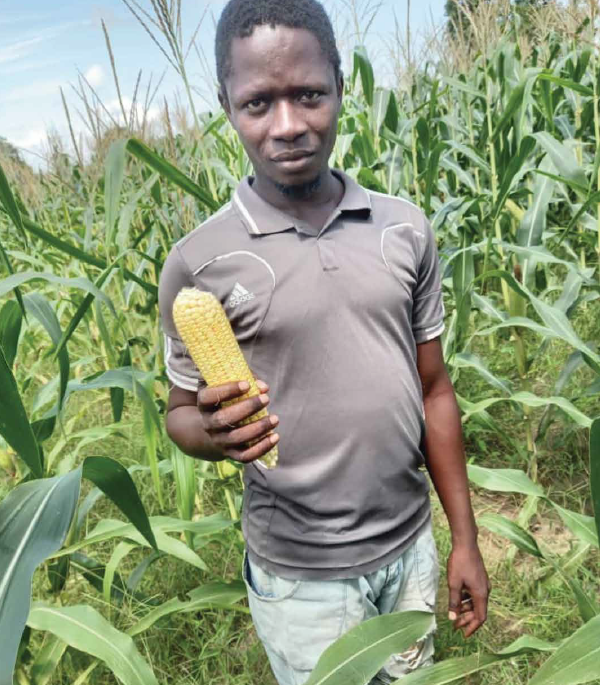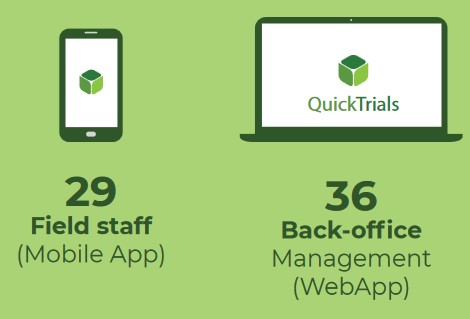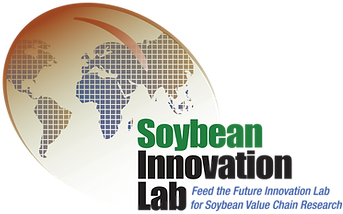
SFSA
CASE STUDY
November 2020

Trial Countries

“ QuickTrials allows us to digitize the process of field trialing from protocol creation to data capture, validation and export. Functionality available to users is based on their role in the overall process, which makes the tool simple and easy to use.”
Nathalie Vignaux
“ QuickTrials allows us to follow a target-driven approach that makes experimentation a lot more efficient.”
Ye Pyae Kyaw
“ Hand-written measurements can be difficult to read. For example 1.5 and 7.5 can look similar. With QuickTrials the data are always clear and it feels good knowing the information is safe. I like it because it’s user f riendly, easy to use and works like magic!.”
Esther Mirie
“ QuickTrials facilitates the compilation of data in a way that we can make decisions on seed variety advancements without the need to pull up and synthesize the data manually ”
Nathalie Vignaux
“ One of the biggest benefits of QuickTrials is having all of the trials in one database, which can be accessed by everyone. This provides valuable insight and saves us a lot of time! ”
Sophie Sinelle


Nathalie Vignaux
Seeds2B Operational Excellence Lead

Esther Mirie
Project Officer

Ye Pyae Kyaw
Seed Portfolio Manager









